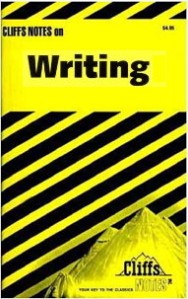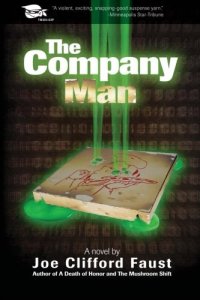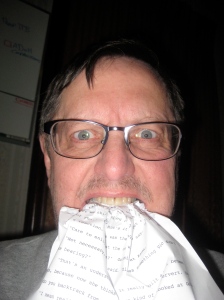 A lot of my posts come from questions I get from aspiring writers struggling with some part of the writing process or another. The other day I got an email peppered with questions I had mostly already answered. However, it occurred to me that there might be others out there who, like this particular reader, who haven’t had the chance to wade through the 700+ posts here to find what they want.
A lot of my posts come from questions I get from aspiring writers struggling with some part of the writing process or another. The other day I got an email peppered with questions I had mostly already answered. However, it occurred to me that there might be others out there who, like this particular reader, who haven’t had the chance to wade through the 700+ posts here to find what they want.
So instead of cutting and pasting a whole bunch of links to essays in this side, I went for the short answer, knowing I would post the results in a kind of Cliff’s Notes version of this blog.
So here’s the short answer version of many popular writer’s questions. For more detail, see the rest of the blog.
(Note: questions in parenthesis are paraphrased by yours truly for the sake of brevity)
(Reader mentions different jobs he has had, including a recent stint in the military)
Thank you for serving in the military. I can’t thank you enough for doing that.
It sounds you have a lot of different experiences, which is a good thing. A writer doesn’t have to have experience in a lot of different jobs and rely solely on imagination, but I think experience helps. Your resume sounds a lot like my early one before I settled down.
(Reader asks about how one should go about tackling a writing project)
If you’re reading my blog, you’ve probably found tons of information about writing from my particular point of view. You should hunt up some blogs from other writers to see how they’re handling things. I’m a big proponent of finding out what works for you as a writer, because what works for me or another writer might not be your cup of tea. Plus, the way I write has evolved over the years.
I’m 39 and I’ve wanted to write my entire life but have yet to finish a book. I have multitudes of ideas streaming in my head with good ideas.
Yup, you’ve got it bad. Welcome to the club. Most writers have tons of ideas (I even do a writer’s seminar called “The Idea Is The Easy Part” to show how easy it is to come up with a concept for a novel). Our big issue is time to do something with those ideas.
I have a friend who is a brilliant idea man. He’s always coming up with a new idea for a book. His problem is, he gets these new ideas when he’s supposed to be working on another book, and he gets so taken with the new idea that he abandons his in-progress for the new idea. Those writers who are published learned to discipline themselves and pick one idea, working on it until it’s done. If the new idea is really good, it won’t go away.
I go out and buy notebooks and pens and write short spurts here and there.
I do that too. I have notebooks with notes and starts of books all over the place. It’s like buying a new notebook and/or pen validates the new idea. But again, that discipline is the key.
But I make excuses and think that I can’t make money doing that.
It’s hard. And it’s hard for outsiders to understand that, for every Tom Clancy or Stephen King, there are 1,000 writers like me who do it for the love of writing, and of course, for a shot at that brass ring.
Fortunately, with the advent of the Amazon Kindle and other e-readers, it’s become easier to make money on one’s work by self-publishing. Good money. One woman just signed a $2 million contract with a major publisher based on the Twilight knockoff novels she was self-publishing. But it needs to be good. Or shamelessly commerical.
Do I need an agent?
There’s a joke in the industry that you can’t get a book sale without an agent, and you can’t get an agent unless you have sold a book. If you want to get published by the Big Six, you need an agent. If you’re willing to go the self-published route, no. If your self-pubbed stuff catches on, the agents will find you.
The story of how I got my agent is on my blog. It helped that I went in through the Science Fiction/Fantasy Door. That genre is more open to new writers and unsolicited submissions than the more mainstream stuff.
How do I get a book contract?
By writing a darn good book. And you do that by writing and writing and writing and writing. Every time you write you get better at it. No anabolic steroids necessary.
How can I get a publisher to pay me while I write?
1) Write a darn good book
2) Sell it to a publisher
3) While you are marketing the first book, start on the next one. This way you can tell your publisher you’re working on a new book and they will understand that you’re serious about writing.
4) If your book gets buzz, or hits it big, or perhaps even breaks even, your publisher will want to tie you down with a multi-book contract. When that happens, congratulations!
That’s approximately the way to do it. Fortunately for us all, publishers want to make sure an author can go the distance and produce something both readable and salable before committing to their writing careers.
I’m sure some people have gotten contracts without going through some version of this, but they were either celebrities who could be hooked up with ghostwriters, or had established themselves as writers in another area (short fiction, journalism, etc.)
When you were writing the Angel’s Luck series what was your writing process?
It depends. The first book, Desperate Measures, was the first novel I ever wrote. During its writing I was going to college, getting married, and looking for a job. It was written piecemeal over the course of 4 1/2 years, and the original version was twice as long as what was published. While it was at market, I wrote A Death Of Honor, then The Mushroom Shift (about police work – I worked for a few years as a sheriff’s dispatcher), then The Company Man. By then I was a better writer and was able to hack the mess that was DM into shape.
The other two books in the trilogy I was under contract to write. I had said I was never going to write a trilogy, but the characters wouldn’t leave me alone. So I pitched DM to my editor as the first book, said a few words about what the other two books would be like, and Del Rey bit. I wrote those two as a full-time writer, and I treated it like a full-time job.
How many hours a day did you write?
Again, it depends. When I’m writing a novel, I tell myself my daily goal is 5 pages, and I take however long it takes to get there. Many days I’d get on a roll and write more in just a couple of hours. If I was having a bad day, I told myself I had to get through at least one page. More often than not, getting through the first page made it possible to write four more. But sometimes one was all I could struggle through.
WARNING: Telling friends and family that you are writing full time will often lead them to think that, since you are home, you are “not doing anything”, and are therefore eligible to do things like help them move pianos.
How did you find a decent Editor to read your work?
I was marketing A Death of Honor, and since it was Science Fiction, I was going the Slush Pile route (SF is institutionally more friendly to unsolicited submissions than any other genre – although romances may be this way also… I wouldn’t know). A bunch of smaller houses turned it down. A big house wanted it, but they wanted changes that I felt would have damaged the integrity of the story. My wife kept telling me to send it to Del Rey, and I kept saying no because they published Heinlein and Clarke – what would they want with me? She persisted. I gave in. And I can’t count over the years how many times I have been grateful for my wife’s encouragement.
I do want to write and I feel that is my talent.
If you really, really want to write, nobody can stop you. Not even yourself. All sorts of people have told me they wanted to write, but when it came down to it, no encouragement I gave could make them actually sit down and write. A few did and succeeded, but if they didn’t have that spark inside driving them, they never would have made the commitment. Many others tried and gave up, or ended up not trying.
I said that it took me 4 1/2 years to write Desperate Measures. That’s because I wanted to be a writer more than anything else. And I wrote whenever I could steal the time to do it. A lot of times it was a half-page, page, two pages here and there. It added up. When I finally finished, I learned that I could write a novel. I started to get an idea of how I worked as a writer. I learned that, every time I wrote, I got better at it. And I learned that, having done it once, I wanted to do it again.
And I’m still trying. I’m not where I’d like to be as a writer, either. But I haven’t given up because I know how much writing means to me, and I know I’d rather be writing novels than anything else.
So steal what time you can to pile up those pages and see what happens.
—
And that is Volume One of the Cliff’s Notes. Feel free to question or append in the comments.
 I know the focus is on Drawing Down the Moon right now, but I should mention that a new edition of The Company Man – in trade paperback – is now available on Amazon… and elsewhere for order as time goes on.
I know the focus is on Drawing Down the Moon right now, but I should mention that a new edition of The Company Man – in trade paperback – is now available on Amazon… and elsewhere for order as time goes on.








